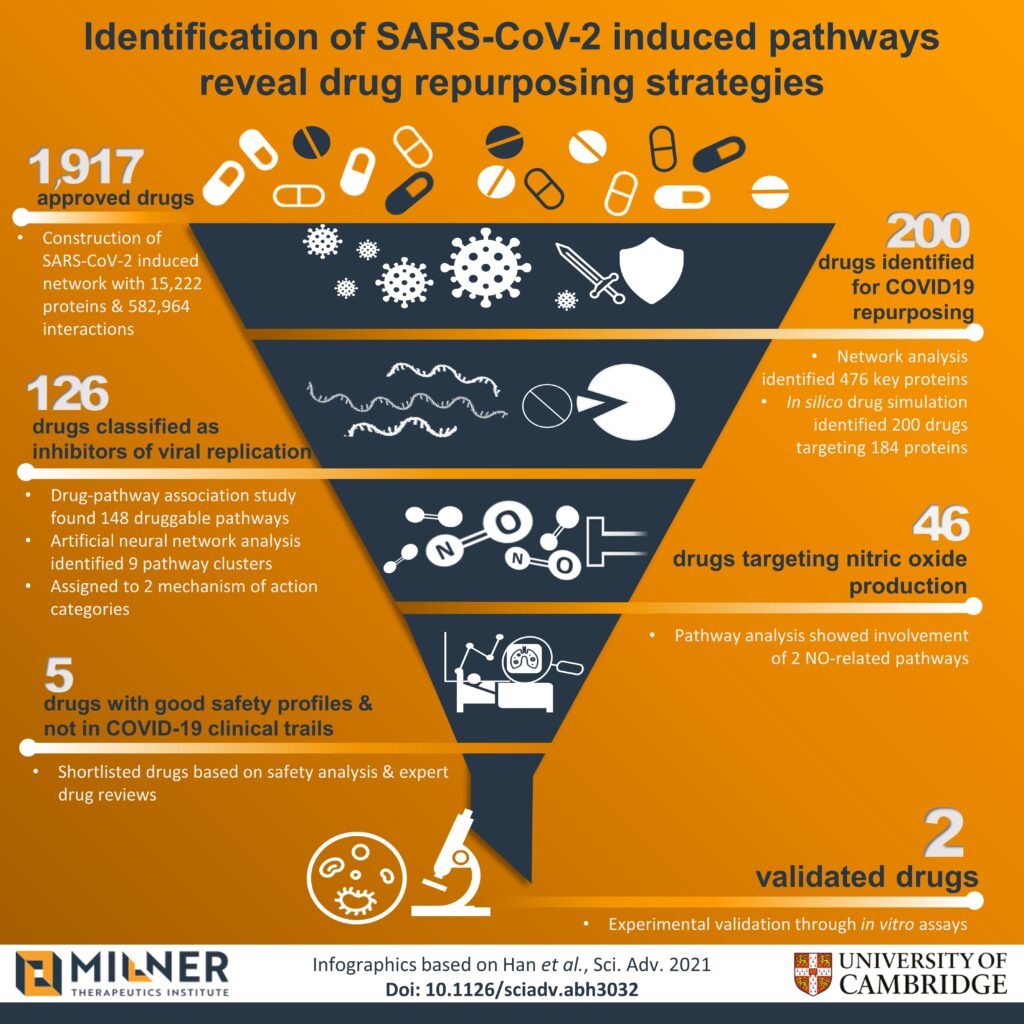Namshik Han’s group at the Milner Therapeutics Institute, have identified 200 approved drugs predicted to work against COVID-19 – of which only 40 are currently being tested in COVID-19 clinical trials.
In a study published this week in Science Advances, Han’s group show how they used a combination of computational biology and machine learning to create a comprehensive map of proteins that are involved in SARS-CoV-2 infection – from proteins that help the virus break into the host cell to those generated as a consequence of infection. By examining this network using AI approaches, they were able to identify key proteins involved in infection as well as biological pathways that might be targeted by drugs.
“Our study has provided us with unexpected information about the mechanisms underlying COVID-19 and has provided us with some promising drugs that might be repurposed for either treating or preventing infection. While we took a data-driven approach – essentially allowing artificially intelligent algorithms to interrogate datasets – we then validated our findings in the laboratory, confirming the power of our approach.” – Dr Namshik Han
Abstract from the paper
 The global outbreak of severe acute respiratory syndrome coronavirus 2 (SARS-CoV-2) necessitates the rapid development of new therapies
The global outbreak of severe acute respiratory syndrome coronavirus 2 (SARS-CoV-2) necessitates the rapid development of new therapies
against coronavirus disease 2019 (COVID-19) infection.
Here, we present the identification of 200 approved drugs, appropriate for repurposing against COVID-19. We constructed a SARS-CoV-2–induced protein network, based on disease signatures defined by COVID-19 multiomics datasets, and cross-examined these pathways against approved drugs.
This analysis identified 200 drugs predicted to target SARS-CoV-2–induced pathways, 40 of which are already in COVID-19 clinical trials, testifying to the validity of the approach. Using artificial neural network analysis, we classified these 200 drugs into nine distinct pathways, within two overarching mechanisms of action (MoAs): viral replication (126) and immune response (74). Two drugs (proguanil and sulfasalazine) implicated in viral replication were shown to inhibit replication in cell assays.
This unbiased and validated analysis opens new avenues for the rapid repurposing of approved drugs into clinical trials.
Read the press release from the University of Cambridge.
